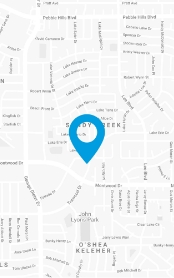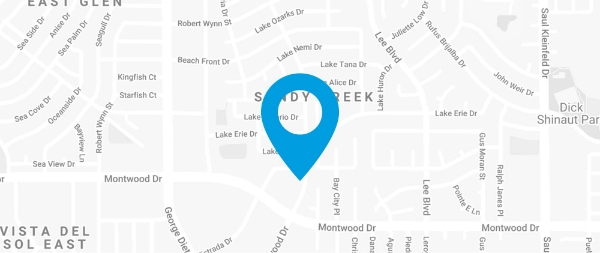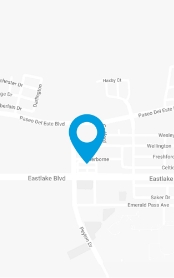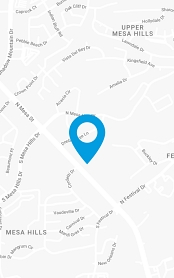LASIK Surgery

At LASIK, Cornea & Cataract Specialty Center in El Paso, one of the best parts of our job is helping our patients see clearly, especially if we can help them decrease or even eliminate their dependence on glasses and contact lenses.
What is LASIK Eye Surgery?
LASIK (laser-assisted in situ keratomileusis) is perhaps the best-known form of vision correction surgery, and it involves reshaping the cornea to correct refractive errors. Refractive errors such as nearsightedness (myopia), farsightedness (hyperopia), and astigmatism are caused by irregularities in the shape of the cornea. This prevents the cornea from properly refracting light to produce clear images. By reshaping the cornea, the eye surgeons at LASIK, Cornea & Cataract Specialty Center make crisp, clear vision the new norm for our patients.
According to the American Refractive Surgery Council, up to
Trusted Source
What is the LASIK Success Rate?
American Refractive Surgery Council
Go to Source
90% of patients
achieve vision that is 20/20 or better after LASIK vision correction surgery.
Benefits of LASIK
Our patients realize numerous benefits from LASIK eye surgery, including:
- Fast, comfortable procedure
- Near-immediate results
- Reduction or elimination of need for glasses and contact lenses
- High patient satisfaction rate:
Trusted Source Functional outcome and patient satisfaction after laser in situ keratomileusis for correction of myopia and myopic astigmatism Bamashmus MA, Hubaish K, Alawad M, Alakhlee H Go to Source 98.5% of patients are satisfied or very satisfied with the experience and outcome of LASIK.

LASIK Surgery: What to Expect
Preparing for LASIK
Preparing for LASIK begins with a thorough consultation with Dr. Mario Di Pascuale or Dr. Austin Ellyson. During this meeting, you will undergo a thorough eye examination and discuss your vision correction needs and goals. Once you are deemed a good candidate for LASIK, your procedure will be scheduled.
Contact lens wearers will need to switch exclusively to glasses for two weeks before their initial LASIK consultation, because contacts can change the shape of the cornea and cause measurements to be inaccurate. On the day of your procedure, you should not wear any makeup, creams, or lotions on your face.
You won’t be permitted to drive yourself home after LASIK, so please make arrangements for a ride home. While the LASIK procedure takes only about 10-15 minutes, you should expect to be at our office for about 90 minutes on the day of your vision correction surgery.
The LASIK Procedure
Before LASIK begins, your eye surgeon will apply anesthetic eye drops to help ensure your comfort during the procedure. A device will be used to hold your eyes open so you don’t need to worry about blinking.
You will recline in a comfortable treatment chair during the procedure. First, the surgeon will create a flap in your cornea. Next, a laser will be used to reshape the cornea and the flap will be put back into place. The cornea will heal itself naturally, so no stitches are needed after LASIK.
After a brief recovery period here, you will be released to be
Trusted Source
Lasik: what should I expect before, during, and after surgery?
FDA
Go to Source
driven home
.
1.
2.
3.
Recovery After LASIK
After your LASIK, you will probably want to take a nap. Please be sure to keep the protective shield over your eyes when you sleep for the first few days.
Your eyes may feel itchy or gritty, and they may water for the first few hours after LASIK. Your doctor will give you eye drops that should improve your comfort and reduce redness.
LASIK Results
The results of LASIK vision correction are nearly immediate. Many of our patients report clearer vision within 24 hours of their procedure, though it may take a few days to realize the full extent of your corrected vision.
Who is a Candidate for LASIK?
There are a few common traits that most LASIK surgery candidates share. An ideal candidate for LASIK surgery:
- Is 18 years of age or older
- Has maintained a stable vision prescription for at least one year
- Has healthy corneas
Fortunately, with the recent advancements in LASIK technology and techniques, this vision correction procedure can help more patients than ever before.

LASIK Alternatives
The LASIK, Cornea & Cataract Specialty Center offers a range of vision correction procedures. If you are not a candidate for LASIK, because of thin corneas or for another reason, other treatments such as ICL or PRK may better suit your needs. You can compare vision correction options and schedule a consultation with our experienced staff who will evaluate your needs and guide you to the best option for you.
Can I afford LASIK?
Yes. At LASIK, Cornea & Cataract Specialty Center, we make it possible to fit the cost of LASIK into any budget. We offer convenient financing through CareCredit®, Sunbit and Alphaeon® Credit that allows our patients to break the cost of LASIK down into affordable monthly payments.
When you consider paying for LASIK, it’s also important to think about how much money LASIK will save you over time. Corrective lenses – eyeglasses and contact lenses – over time can be costly, adding up to $6,000 in maintenance expenses over just 10 years. By selecting to have laser surgery, you stand to save thousands in the long run toward frames, lenses, contacts, contact solution, optometrist appointments and let’s not forget the expense of an extra pair in the unfortunate event that you’ve broken and/or lost your glasses or contact lenses.

Hear from our patients!
Frequently Asked Questions About LASIK
Does LASIK hurt?
Doctors will apply anesthetic eye drops prior to the procedure to ensure complete comfort, and all you will feel is light pressure. Following the procedure some people have reported a sensation similar to having an eyelash in their eye for a period of time, but most people experience very little discomfort.
Can I have LASIK on both eyes at the same time?
Yes! Actually, most of our patients prefer to have LASIK on both eyes at the same time, as this reduces their recovery time and time away from work. Plus, this allows our patients to see optimally clear vision that much sooner!
Is LASIK safe? What are the risks of LASIK?
When performed by a highly qualified ophthalmologist such as Dr. Mario Di Pascuale, LASIK is generally considered to be a very safe procedure.
Still, any surgical procedure is associated with some risks and complications. According to the American Refractive Surgery Council,
Trusted Source
LASIK Complication Rate: The Latest Facts and Stats You Should Know
American Refractive Surgery Council
Go to Source
fewer than 1%
of LASIK patients experience any surgical complications. Potential
Trusted Source
What are the risks and how can I find the right doctor for me?
U.S. Food and Drug Administration
Go to Source
risks of LASIK
, while rare, include:
- Dry eye syndrome
- Unfavorable changes in vision
- Glare
- Double vision
- Halos
- Corneal flap dislocation
- Sensitivity to light
Will I still need reading glasses after LASIK?
LASIK is designed to be permanent, but there is still a chance that changes to your eyes will affect your vision later in life. Presbyopia, or age-related near vision loss, affects most people after the age of 40. If presbyopia sets in after your LASIK procedure, you may still need reading glasses.
Contact LASIK, Cornea & Cataract Specialty Center
At LASIK, Cornea & Cataract Specialty Center in El Paso, our mission is to ensure that each of our patients enjoys healthy eyes and clear vision for life. If you would like to learn more about LASIK and whether you may be able to get rid of your glasses and contacts forever, please contact us to schedule a consultation.
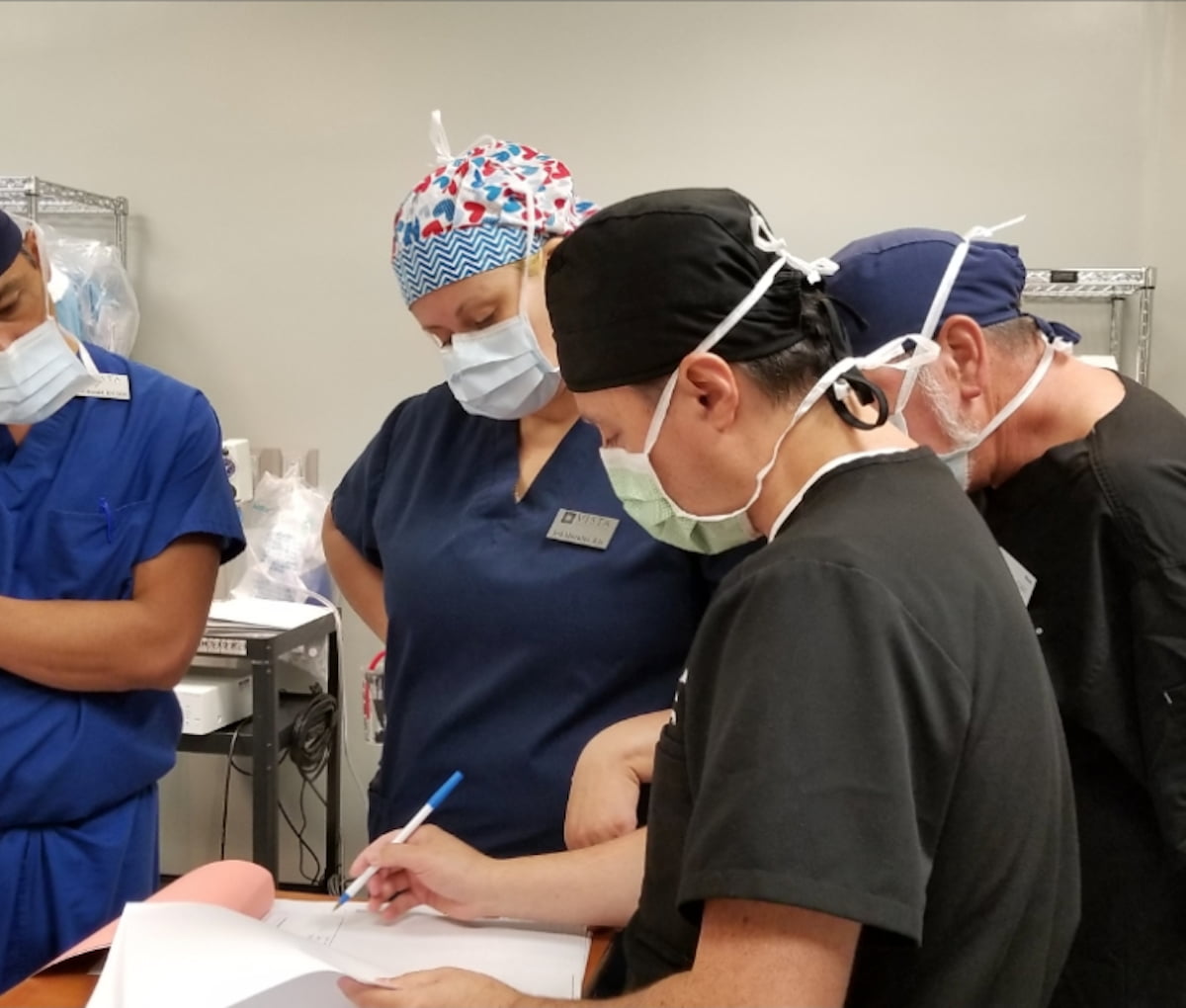
Treating Families - Not Just Their Conditions
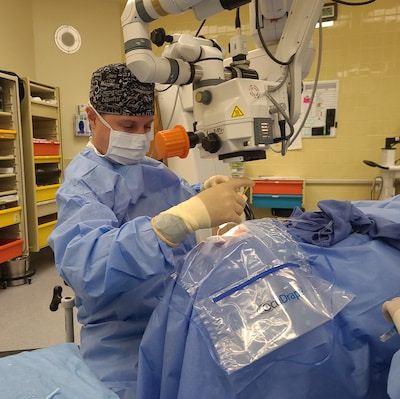
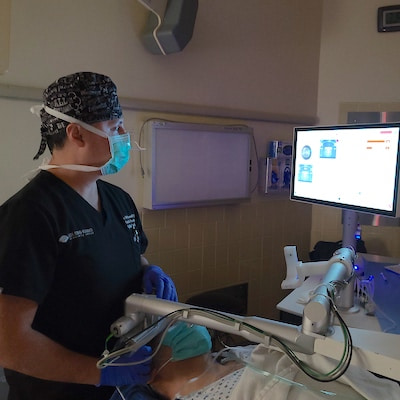
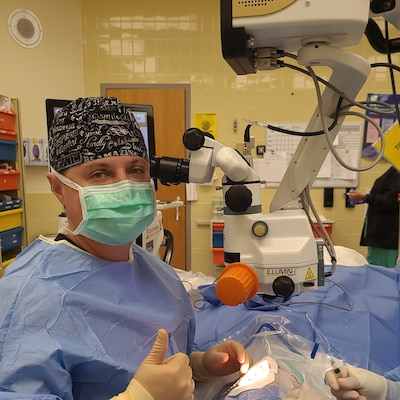
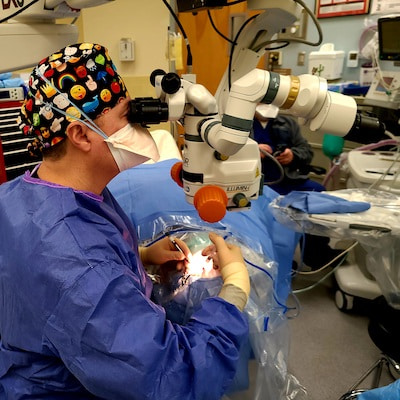
1 American Refractive Surgery Council. What is the LASIK Success Rate? Available: https://americanrefractivesurgerycouncil.org/laser-eye-surgery-lasik-success-rate/. Accessed March 25, 2022.
2 Bamashmus MA, Hubaish K, Alawad M, Alakhlee H. Functional outcome and patient satisfaction after laser in situ keratomileusis for correction of myopia and myopic astigmatism. Middle East Afr J Ophthalmol. 2015 Jan-Mar;22(1):108-14. doi: 10.4103/0974-9233.148359. PMID: 25624684; PMCID: PMC4302464. Available: https://pubmed.ncbi.nlm.nih.gov/25624684/. Accessed March 25, 2022.
3 FDA. Lasik: what should I expect before, during, and after surgery? Available: https://www.fda.gov/medical-devices/lasik/what-should-i-expect-during-and-after-surgery. Accessed March 25, 2022.
4 American Refractive Surgery Council. LASIK Complication Rate: The Latest Facts and Stats You Should Know. Available: https://americanrefractivesurgerycouncil.org/lasik-complication-rate-latest-facts. Accessed March 25, 2022.
5 U.S. Food and Drug Administration. What are the risks and how can I find the right doctor for me? Available: https://www.fda.gov/medical-devices/lasik/what-are-risks-and-how-can-i-find-right-doctor-me Accessed March 25, 2022.

